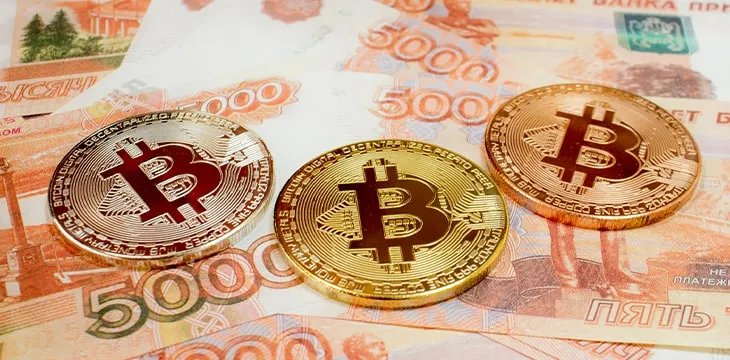|
Getting your Trinity Audio player ready...
|
Anatoly Aksakov, head of Russia’s State Duma Committee on financial markets, has introduced a proposal to launch a regulated digital assets exchange for the Russian market.
Local news outlet Interfax reports that Aksakov made the proposal while speaking at a press conference. The proposal may see the Moscow Stock Exchange (MOEX), Russia’s largest stock exchange, create a digital assets subdivision.
For Aksakov, the arrangement would be ideal as MOEX already meets all the strict requirements of the Central Bank of Russia (CBR). He also noted that MOEX has “great traditions” and can easily cope with the task of carrying out operations with digital assets.
“Of course there should be a crypto market that is founded on the strict requirements of the central bank. I suggest that it be a subdivision of the Moscow Stock Exchange,” Aksakov said.
Aksakov has been pivotal in Russia’s initiative to regulate digital assets this year. The lawmaker has been the sponsor of several digital assets bills, including the bill to ban the use of digital assets in making payments to ensure it does not become a surrogate to the ruble.
His latest remark came after he recently revealed to media outlets that the bill “On Digital Assets” proposed by the Russian Ministry of Finance back in February would be presented during the autumn parliamentary session.
The bill establishes the legal framework for broad segments of the digital assets market to operate within Russia. It will legalize digital assets exchanges, peer-to-peer platforms, open the doors for foreign digital assets exchanges to land in Russia, and make it possible for the market to access banking services under the supervision of the CBR and strict transaction monitoring by Rosfinmonitoring—Russia’s AML/CFT regulator.
Russia and digital assets exchanges
Russia has had a turbulent relationship with the digital assets market over the years. Before it began its invasion of Ukraine and faced international sanctions, Russia’s central bank’s stance was that digital assets should be banned as their volatility posed a risk to local investors and the financial stability of the Russian economy.
However, the CBR became much more receptive to digital assets and blockchain technology and the possibility of their use in reducing the impact of international sanctions on the country’s financial system.
This aligned the bank with sectors of the government that had been advocating for regulations. CNBC reports that the Kremlin estimates Russian investors hold over 10 trillion rubles (about $124 billion) worth of digital assets. This may have reduced significantly as many international exchanges where these assets are held have limited their service to Russians.
Watch: The BSV Global Blockchain Convention panel, The Future of Digital Asset Exchanges & Investment
https://www.youtube.com/watch?v=RzJsCRb6zt8&t=7800s

 07-12-2025
07-12-2025 





